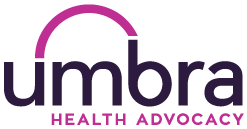Will AI Transform Your Healthcare? Here’s What You Need To Know

Whether you’re already using ChatGPT to write your emails or you’re wary of artificial intelligence (AI), there’s no avoiding it. AI is permeating every aspect of modern life, including healthcare. But what does AI mean for you? Here are some key things to know about AI in healthcare.
What is AI?
Artificial intelligence (AI) refers to a computer’s capabilities to mimic human behavior. AI gives machines the power to think, learn, and make decisions, which lets them automate certain tasks.
One recent survey defined artificial intelligence (AI) as “a mini-brain in a computer that can think, learn, and make decisions based on data, similar to how we learn from experiences.”
AI shows up in many aspects of modern life, from tools that let you text a friend with voice commands to algorithms that suggest the next TV series you should binge.
In healthcare, AI is already widely in use. AI can help doctors analyze MRIs and X-rays to more accurately diagnose diseases like heart disease or cancer. It can help doctors predict who will respond best to certain drugs or other treatments. AI can help scientists conduct medical research more efficiently or match patients to clinical trials. AI can help patients figure out how to take care of themselves or help them notice patterns in their symptoms.
How do people feel about AI in healthcare?
Recent surveys show that many people are feeling optimistic about the potential for AI to improve their healthcare.
In a survey conducted by Deloitte’s Center for Health Solutions, most people (84%) said they’ve heard of AI. Almost half (46%) said they’re already using AI for something.
Some people are already using AI for things like finding out about health problems, looking up treatments, and understanding medical and insurance jargon. People without health insurance are more likely to use AI for health reasons. They’re also more likely to use AI for mental health support, to find a doctor, and to get recommendations about medicines at higher rates than people with health insurance.
Deloitte’s survey showed that about half of adults surveyed believe that AI can improve healthcare overall (53%) and that AI could make healthcare more affordable (46%).
Most people said they’d be comfortable with AI to learn about new treatments, to help review their lab results and scans, find the best treatment for their condition, and diagnosing their condition.
Another recent survey showed that people are optimistic about AI in dental care, not just medical care. About half of people who responded to the survey said they’d feel comfortable with their dentist using AI and 59% said they’d be more likely to take their dentist’s advice if they knew AI had helped the dentist make the diagnosis.
People said that if they knew that AI could help them find less invasive or less expensive dental treatments, they’d be more comfortable with their dentist using AI in their care. People also liked the idea that AI could help prevent their dentist from over diagnosing them.
AI is already widely used in dental offices, and experts believe it will become the norm in just a few years.
What you should know
Maybe the most important thing to realize is that high-tech healthcare is already here. Doctors and other healthcare providers and scientists are already using AI widely in healthcare and dental care. And it’s only going to become more common—and more useful. As algorithms get more data, they get smarter and more helpful to us.
The other thing to keep in mind is that AI isn’t perfect. Even though it’s getting better and smarter, AI can make mistakes. If you’re worried about your health or want to get medicine for a condition, visit a healthcare professional. AI isn’t good enough to replace your doctor.
Most people want to know if their doctor is using AI. The Deloitte survey showed that 83% of people think it’s important that their doctors disclose when they’re using AI. Another survey showed that 80% of consumers feel it’s important to know if their doctor is using AI. If you want to know whether your doctor is using AI to diagnose you or pick treatments for you, you can (and should) ask. It’s your health and it’s your care.
